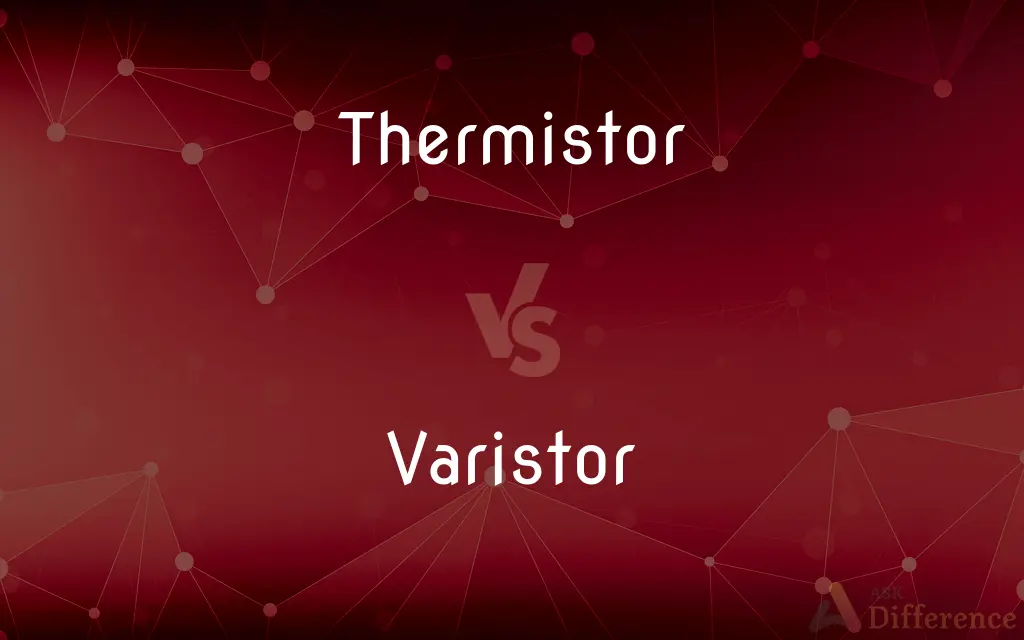Thermistor vs. Varistor — What's the Difference?

Difference Between Thermistor and Varistor
ADVERTISEMENT
Compare with Definitions
Thermistor
A thermistor is a type of resistor whose resistance is strongly dependent on temperature, more so than in standard resistors. The word is a combination of thermal and resistor.
Varistor
A varistor is an electronic component with an electrical resistance that varies with the applied voltage. Also known as a voltage-dependent resistor (VDR), it has a nonlinear, non-ohmic current–voltage characteristic that is similar to that of a diode.
Thermistor
A resistor made of semiconductors having resistance that varies rapidly and predictably with temperature.
Varistor
(electronics) An electronic component having a variable resistance; used to protect circuits against power surges.
Thermistor
(electronics) A resistor whose resistance varies rapidly and predictably with temperature and as a result can be used to measure temperature.
ADVERTISEMENT
Thermistor
A semiconductor device made of materials whose resistance varies as a function of temperature; can be used to compensate for temperature variation in other components of a circuit
Share Your Discovery

Previous Comparison
Perigon vs. Angle
Next Comparison
Thoroughgoing vs. Thorough













































